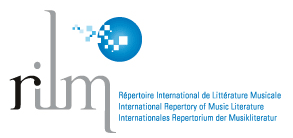Texture as immanent space. Theory, historiographical representations and aesthetic notions
Keywords:
immanent space, stylistic categories, historical representation, post-serialism, textureAbstract
A Subjective Pathway to an Objective Modernity. Boris Asafyev and the Avatars of Musicology in the Soviet Union
Soviet musicologists worked side by side with composers and were in charge of defining the ways in which works should be composed under the precepts of Socialist Realism. In this sense, studying the functioning of musicology in the Soviet Union becomes an important input for a better understanding of the compositional field as well of the cultural dynamics of the soviet regime. This article focuses on the figure of Boris Asafyev, the founder of musicology in the Soviet Union. It analyzes one of his first texts written during the revolutionary context, in which the musicologist raises a series of questions that will lay the foundations of what would later be his main musicological concepts, such as intonatsia or simfonizm, concept that would be incorporated into Socialist Realism. The hypothesis developed here is that there is in the young musicologist Asafyev a concern for the relationship between the new revolutionary society and the Russian musical heritage that is closely linked to a concern early shown by the revolutionaries themselves, namely the development of a Soviet modernity that should be parallel to the construction of a communist society. This concerns will reappear with force in the 1930s and 1940s when the Soviet system reaches its most defined physiognomy.
Published
Issue
Section
License
ATTRIBUTION-NONCOMMERCIAL 4.0 INTERNATIONAL
https://creativecommons.org/licenses/by-nc/4.0/
You are free to:
- Share — copy and redistribute the material in any medium or format
- Adapt — remix, transform, and build upon the material
- The licensor cannot revoke these freedoms as long as you follow the license terms.
Under the following terms:
- Attribution — You must give appropriate credit , provide a link to the license, and indicate if changes were made . You may do so in any reasonable manner, but not in any way that suggests the licensor endorses you or your use.
- NonCommercial — You may not use the material for commercial purposes .
- No additional restrictions — You may not apply legal terms or technological measures that legally restrict others from doing anything the license permits.
Notices:
You do not have to comply with the license for elements of the material in the public domain or where your use is permitted by an applicable exception or limitation .
No warranties are given. The license may not give you all of the permissions necessary for your intended use. For example, other rights such as publicity, privacy, or moral rightsmay limit how you use the material.







